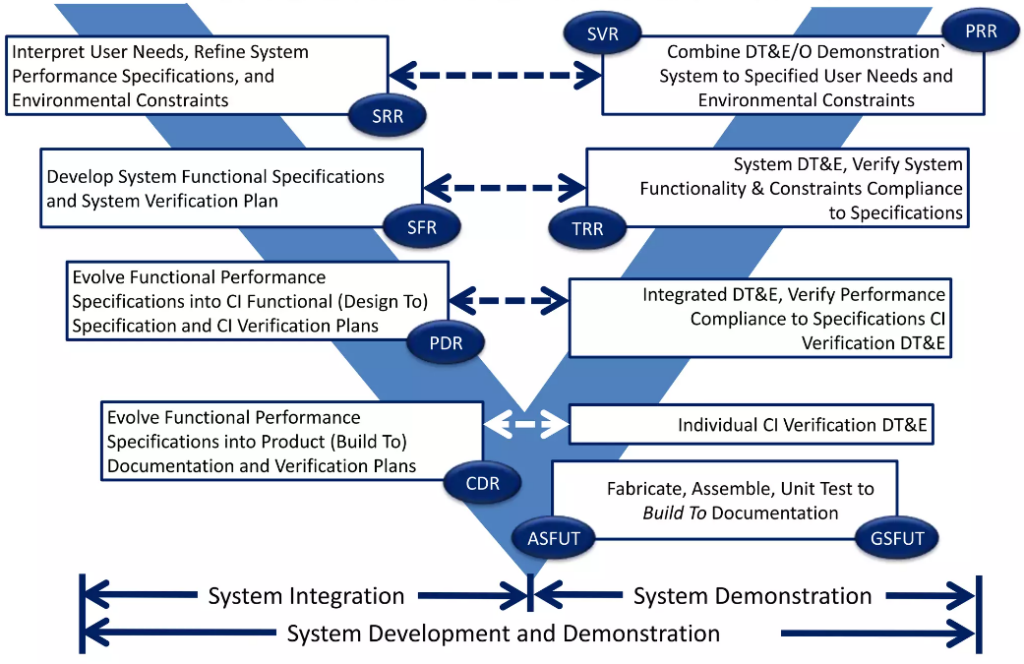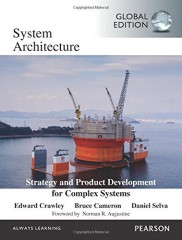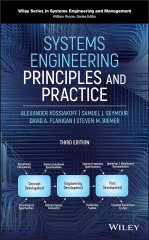Imagine a modern electric vehicle – thousands of interconnected components working in perfect harmony, from battery management to autonomous driving systems. This is Systems Engineering in action. In today’s world, complex systems are everywhere, powering everything from smartphones to space stations.
Systems Engineering is a disciplined approach to designing, building, and managing complex systems that emphasizes understanding how different parts work together rather than in isolation. As industries become increasingly interconnected and automated, this approach has become critical for developing reliable, efficient, and sustainable solutions.
Whether you’re a project manager overseeing large-scale infrastructure projects, an engineer working on cutting-edge technology, or a decision-maker in any technology-driven industry, understanding Systems Engineering principles is crucial for navigating today’s complex technological landscape.
Table of Contents
Understanding Systems Engineering
Systems Engineering is a methodical approach that goes beyond traditional engineering disciplines. It focuses on how individual components come together to create successful outcomes in complex projects. Rather than looking at pieces in isolation, Systems Engineers take a holistic view of the entire system lifecycle, from conception through development, implementation, and maintenance.
Core Elements of Systems Engineering:
- Holistic System Approach: Views the entire system as more than just the sum of its parts
- Integration Focus: Emphasizes how components work together rather than individual pieces
- Lifecycle Perspective: Considers the full journey from concept to retirement
- Requirements Management: Ensures all stakeholder needs are captured and met
- Risk Management: Identifies and mitigates potential issues early
- Technical Leadership: Guides teams through complex technical challenges
- Performance Optimization: Continuously improves system efficiency and effectiveness
A Systems Engineer thinks differently from traditional engineers. They must simultaneously consider multiple layers of complexity while maintaining sight of the overall project goals. In practice, they serve as the bridge between different technical specialties, business requirements, and stakeholder needs.
This foundational understanding of Systems Engineering sets the stage for exploring its specific principles and methodologies in more detail. The role combines technical expertise with strategic thinking to ensure complex projects deliver their intended value while managing risks and constraints effectively.
Recommended Further Reading Amazon BooksFundamental Principles of Systems Engineering
Systems Engineering operates on several core principles that guide how complex systems are designed, built, and managed. These principles work together to ensure successful project outcomes while managing complexity and risk.
Systems Engineers must master and apply these principles throughout the system lifecycle, from initial concept through to final delivery and maintenance. Understanding how these principles interact and support each other is crucial for effective systems development.
| Principle | Description | Key Benefit |
|---|---|---|
| Systems Thinking | Views system as an integrated whole rather than isolated components | Prevents subsystem optimization at the expense of overall performance |
| Requirements Engineering | Systematic approach to gathering and managing stakeholder needs | Ensures final system meets actual user needs and expectations |
| System Architecture | Development of comprehensive technical framework and interfaces | Provides clear blueprint for system development and integration |
| Verification & Validation | Continuous testing and validation against requirements | Catches issues early when they’re less expensive to fix |
| Risk Management | Proactive identification and mitigation of potential issues | Reduces project uncertainty and increases success probability |
The effective application of these principles requires both technical expertise and strong leadership skills. Systems Engineers must be able to communicate these concepts to diverse stakeholders while ensuring they’re properly implemented throughout the project lifecycle.
Understanding these fundamental principles provides the foundation for successful Systems Engineering practice. Each principle builds upon the others to create a comprehensive approach to managing complex systems development.
Recommended Further Reading Amazon BooksPractical Applications of Systems Engineering
Systems Engineering principles and methodologies find practical application across numerous industries, helping organizations tackle complex challenges and deliver successful outcomes. Understanding these real-world applications helps demonstrate the versatility and importance of the Systems Engineering approach.
Key Industry Applications and Examples:
- Transportation Systems
- Autonomous vehicle development integrating sensors, software, and safety systems
- Modern air traffic control systems coordinating thousands of flights daily
- Smart railway networks balancing scheduling, maintenance, and passenger needs
- Healthcare Technology
- Hospital management systems connecting patient care, records, and equipment
- Medical device development meeting strict regulatory requirements
- Telemedicine platforms integrating remote care capabilities
- Defense and Aerospace
- Military communication networks ensuring secure, reliable information flow
- Spacecraft systems operating in extreme environments
- Drone technology balancing performance, safety, and regulatory compliance
- Energy Infrastructure
- Smart grid systems managing power distribution and consumption
- Renewable energy integration into existing power networks
- Nuclear power plant safety and control systems
Each of these applications demonstrates how Systems Engineering helps manage complexity, ensure safety, and deliver value. Success in these areas requires careful attention to requirements, thorough testing, and continuous monitoring of system performance.
The practical impact of Systems Engineering becomes clear through these examples, showing how theoretical principles translate into real-world solutions that affect daily life.
Recommended Future Learn Short CoursesTools and Methodologies in Systems Engineering
Modern Systems Engineering relies on a comprehensive set of tools and methodologies to manage complex projects effectively. Selecting the right tools and approaches can significantly impact project success and team efficiency.
Essential Tools and Their Applications:
- Requirements Management
- DOORS: Industry-standard for tracking complex requirements
- Jama Connect: Modern platform for requirements and test management
- ReqIF: Standard format for requirements exchange between tools
- System Modeling and Analysis
- SysML: Specialized modeling language for systems specifications
- Enterprise Architect: Comprehensive modeling and design platform
- Simulink: Dynamic system simulation and analysis
- Project Management and Collaboration
- Jira: Agile project management and issue tracking
- Confluence: Team collaboration and documentation
- Microsoft Teams: Real-time communication and file sharing
- Testing and Verification
- Jenkins: Automated testing and continuous integration
- TestRail: Test case management and execution
- LoadRunner: System performance testing
The key to successful tool implementation lies not in the quantity of tools used, but in selecting and integrating the right ones for your specific needs. Teams should focus on tools that enhance communication, improve traceability, and support systematic decision-making.
While tools are important, they should support rather than drive the Systems Engineering process. The most effective organizations maintain a balance between robust tools and strong methodological frameworks.

Common Challenges and Solutions in Systems Engineering
Systems Engineering projects face numerous challenges that can impact their success. Understanding these challenges and having strategies to address them is crucial for any Systems Engineer. Here’s a comprehensive look at common challenges and their practical solutions.
| Challenge | Impact | Solution Strategy | Key Success Factors |
|---|---|---|---|
| Stakeholder Management | Conflicting requirements, delayed decisions | Regular structured communication, clear documentation | Defined roles, scheduled reviews, decision matrices |
| Technology Evolution | System obsolescence, integration issues | Modular architecture, technology roadmapping | Future-proofing, standards compliance, upgrade paths |
| Integration Complexity | Schedule delays, system failures | Systematic testing, interface control | Clear protocols, phased integration, automated testing |
| Requirement Changes | Scope creep, budget overruns | Agile methodologies, change control boards | Flexible architecture, impact analysis, baseline management |
| Technical Debt | Reduced maintainability, increased costs | Regular refactoring, architectural reviews | Technical standards, code reviews, documentation |
| Resource Constraints | Quality issues, missed deadlines | Risk-based prioritization, resource leveling | Skilled team allocation, tools optimization, outsourcing |
The key to overcoming these challenges lies in early recognition and proactive management. Successful Systems Engineers develop strategies that anticipate potential issues and prepare contingency plans before problems escalate.
Best Practices for Success in Systems Engineering
Successful Systems Engineering requires more than just technical knowledge. It demands a combination of proven practices, effective methodologies, and continuous improvement. Here are the essential best practices that lead to successful outcomes.
Core Best Practices for Systems Engineering Success:
- Effective Communication Strategies
- Establish clear communication channels and protocols
- Document decisions and their rationale consistently
- Use visual tools to convey complex concepts
- Hold regular stakeholder alignment meetings
- Agile Integration Approaches
- Break large systems into manageable components
- Implement iterative development cycles
- Maintain flexibility in design decisions
- Embrace continuous integration practices
- Professional Development
- Invest in ongoing team training
- Stay current with industry standards
- Participate in professional communities
- Share knowledge across project teams
- Quality Assurance
- Implement robust testing strategies
- Maintain thorough documentation
- Conduct regular system reviews
- Establish clear quality metrics
Each of these practices contributes to the overall success of Systems Engineering projects. The key is consistent application and continuous refinement based on project experiences and lessons learned.
Remember that these practices should be adapted to fit your specific organizational context and project needs while maintaining their core principles.
Future of Systems Engineering
The landscape of Systems Engineering is rapidly evolving, driven by technological advances and changing industry needs. Understanding these emerging trends helps organizations prepare for future challenges and opportunities.
Key Trends Shaping the Future:
- Digital Transformation
- AI and Machine Learning integration
- Digital twins for system modeling
- Automated testing and verification
- Real-time system monitoring and adaptation
- Sustainability Focus
- Green engineering principles
- Circular economy considerations
- Energy-efficient system design
- Environmental impact analysis
- Career Evolution and Opportunities
- Hybrid roles combining systems and data science
- Increased demand for cybersecurity expertise
- Remote collaboration capabilities
- Cross-disciplinary skill requirements
The future of Systems Engineering points toward more integrated, intelligent, and sustainable solutions. As systems become increasingly complex and interconnected, the role of Systems Engineers will become even more critical in ensuring successful outcomes.
Systems Engineers must stay ahead of these trends by:
- Continuously updating their technical skills
- Developing expertise in emerging technologies
- Building cross-functional capabilities
- Understanding global sustainability requirements
This evolution presents both challenges and opportunities for professionals in the field. Those who adapt and embrace these changes will be well-positioned to lead the next generation of complex system developments.
Conclusion
The field of Systems Engineering continues to evolve as technology advances and systems become increasingly complex. The principles and practices we’ve explored throughout this article provide a robust foundation for managing these challenges successfully.
Key Takeaways for Success:
- Embrace holistic system thinking
- Invest in the right tools and methodologies
- Stay adaptable to changing requirements
- Focus on continuous learning
- Maintain strong stakeholder communication
Whether you’re designing autonomous vehicles, developing healthcare systems, or managing smart city infrastructure, Systems Engineering provides the framework needed to turn ambitious ideas into reliable, efficient solutions. The future belongs to those who can effectively integrate complex systems while maintaining focus on stakeholder needs and sustainable outcomes.
Remember: successful Systems Engineering isn’t just about managing complexity—it’s about creating value through systematic, well-planned approaches to solving complex problems.
























